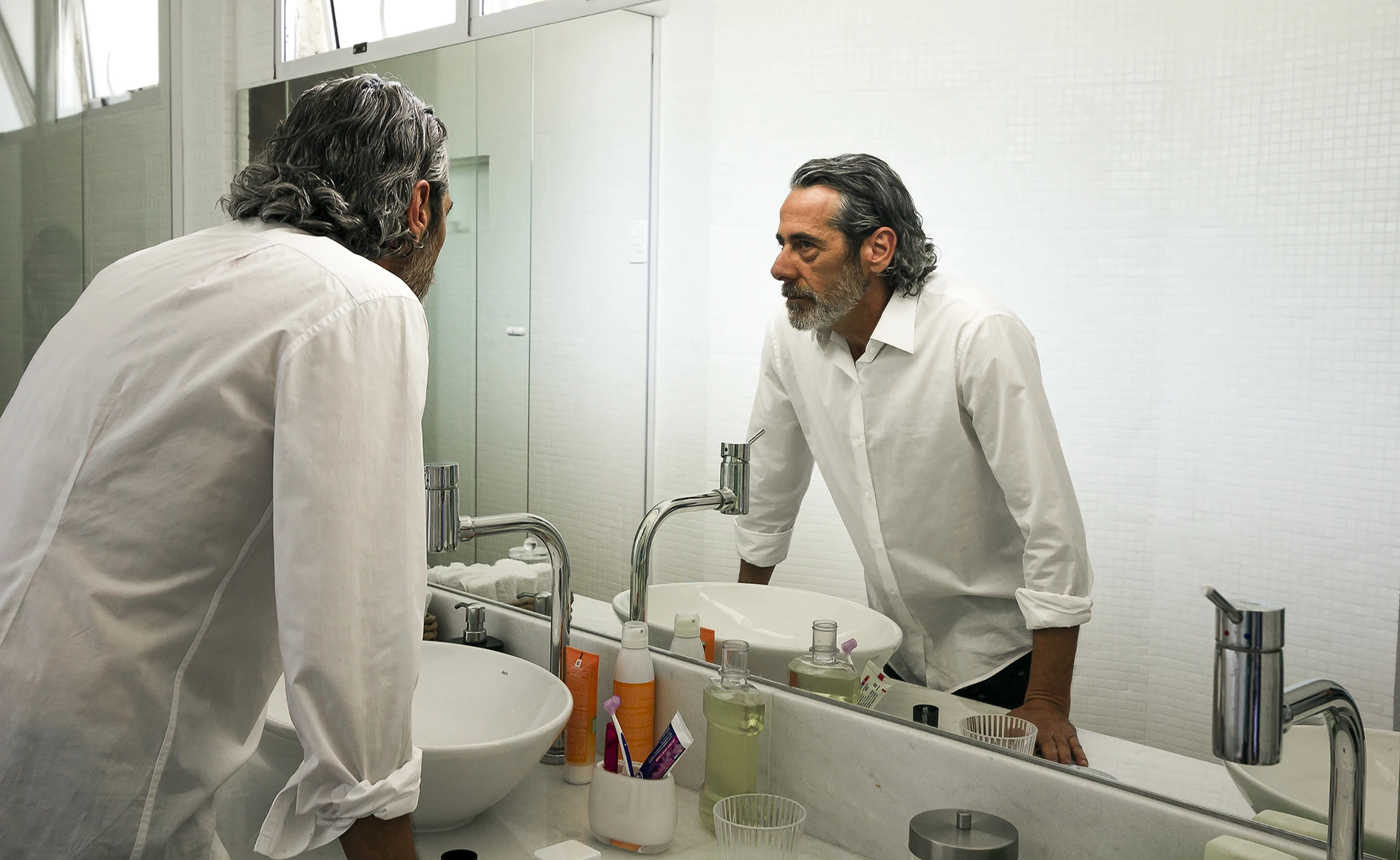When Your Bladder Never Empties

Urinary retention — the inability to empty one’s bladder — is the type of medical condition that sometimes serves as the inspiration for jokes, but not being able to urinate, either fully or partially, is nothing to kid about. Aside from the discomfort, sufferers can develop troublesome complications, including kidney damage and urinary tract infections.
Urinary retention can be seen as the other face of incontinence.
“It sounds as if they might be opposites, and logically, it makes sense,” says Alan J. Wein, M.D., a urologist at the Desai Sethi Urology Institute, part of the University of Miami Health System. “But they really aren’t.”
That’s because the two conditions share similarities, even as they affect a person in different ways. Both are a result of bladder and urinary system dysfunction. Both can be caused by neurological issues, underlying health conditions, or medications. Both affect the quality of life.
Urinary retention is more common in men than women — and the incidence in both sexes increases with age, Dr. Wein says.
Why the gender difference? The top cause of urinary retention is an enlarged prostate that blocks a man’s bladder. In fact, “it’s one of the more common urological diagnoses in the emergency room,” Dr. Wein adds. “Patients come in saying they haven’t been able to urinate all day, but sometimes people wait two days.”
There are two types of urinary retention.
In absolute urinary retention, a person passes no urine at all, though he may still feel the urge to do so.
In cases of partial retention, a person can urinate but does not completely empty the bladder. The patient “dribbles” a weak or stop-and-go stream and feels the urge to go shortly after.
In other words, while most of us urinate six to eight times a day, trips to the bathroom may double for a person suffering from partial urinary retention.
A person with urinary retention “knows where all the bathrooms are or restricts fluid intake when they’re going out,” says Dr. Wein. “It has a big effect on the quality of life.”
To understand the condition, it’s best to outline in broad terms how our urinary stem works.
The bladder serves as a storage tank for urine. When it’s full, it signals the brain that it needs to be emptied. The brain “orders” the bladder to contract its muscle to squeeze the urine out through the urethra, the tube that runs through the penis in men and, in women, is located just above the vaginal opening. Two sphincter rings assist. One works automatically, the other is under voluntary control.
In other words, a person decides when to “open” that sphincter to release fluid.
With so many working parts, there are plenty of places where something can go wrong.
Sometimes it’s a neurological glitch, sometimes its’s the bladder muscle, sometimes one of the sphincters.
Several factors can affect our ability to urinate.
Some medical conditions, such as Parkinson’s Disease, Multiple Sclerosis, diabetic neuropathy and others, are known to be a cause. Add to that list injuries to the bladder or urethra, fibroids, scar tissue along the urinary system.
Medications can impact urinary function as well, including opioids, antipsychotic drugs, certain antidepressants, and antihistamines. “It’s also not unusual after anesthesia,” adds Dr. Wein. That’s because anesthesia’s relaxing effects can interfere with the usual contractions needed for the bladder to expel urine. Anesthesia also disrupts and delays the signals from the brain that tell the bladder it’s time to empty.
Urinary retention is highly treatable.
First, a urologist will perform various tests ranging from a medical history and a pelvic exam to urine analysis, blood tests and cystoscopy, in which a camera inserted in the urethra can detect abnormalities. These, says Dr. Wein, help a doctor determine the cause of the retention, be it neurological or anatomical. Treatment varies according to cause, from draining the bladder to medications and, as a last resort, surgery. “We go from the simple [and least invasive] to the more serious treatment,” Dr. Wein explains.
When no remedy works long term, a patient may have to wear a permanent catheter, but that happens very rarely.
Dr. Wein recommends seeking medical attention at the first sign of symptoms.
In addition to UTIs and kidney damage, complications from untreated urinary retention can lead to a weakened bladder, bladder stones, a poor sex life, disrupted sleep, and overactive bladder.
Waiting, Dr. Wein warns, may result “in a bladder that is unrehabilitable. It doesn’t recover, and that’s very hard to treat.”
Written by Ana Veciana-Suárez, a regular contributor to the University of Miami Health System. She is an acclaimed author and journalist who has worked for The Miami Herald, The Miami News, and The Palm Beach Post.
Tags: amounts of urine, bladder leaks, Dr. Alan Wein, have to urinate, voiding dysfunction
